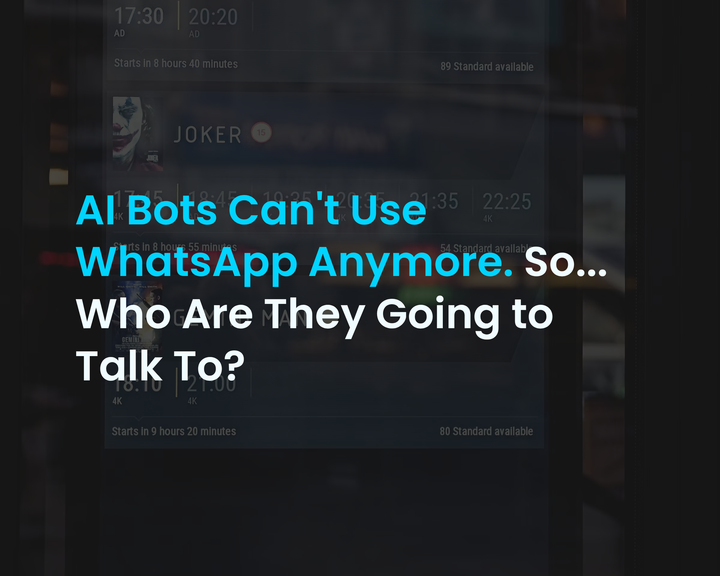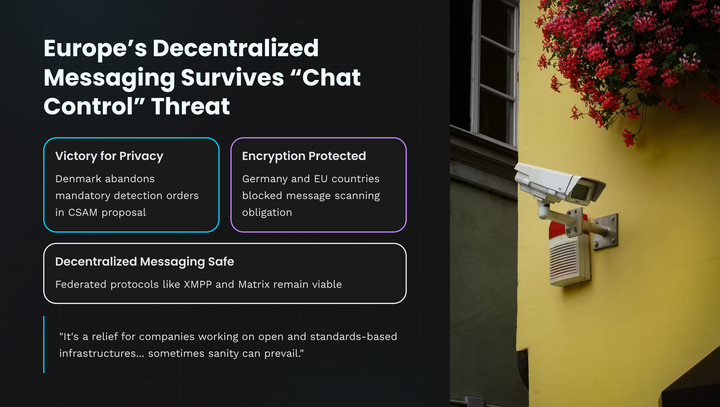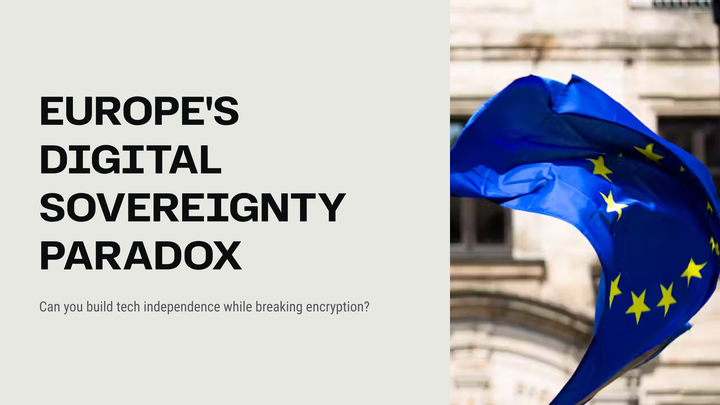AI Bots Can't Use WhatsApp Anymore. So... Who Are They Going to Talk To?
Meta just banned third-party AI chatbots from WhatsApp. Discord raised its capacity to welcome them. Two platforms, two strategies, and a choice that will determine whether AI agents can talk across platforms for the next two decades.

Meta just closed the gates on AI chatbots. I think this is an early warning.
Starting January 15, 2026, WhatsApp will ban all third-party general-purpose AI chatbots from its platform. ChatGPT, Perplexity, Poke, they'll all be gone. The only general-purpose AI you'll find on WhatsApp? Meta AI.
Meta's stated reason: these bots place a "burden on its systems and support teams." The real reason is more likely control, of course.
But here's what makes this fascinating:
While Meta is locking down WhatsApp, Discord—which has no AI ambitions of its own—just raised its server capacity to 25 million users. Why? Because Midjourney, a third-party AI tool, built its entire interface on Discord and now has over 20 million members in a single server.
Discord didn't build the AI. They just provided the platform. And they're reaping the rewards.
Two platforms, two strategies, leading to two very different futures.
Meta is betting that owning both the AI layer and the communication layer is the path to dominance.
Discord is betting that being the best platform for AI, even AI they don't control, creates more value.
I feel like we're watching a pattern repeat itself. We already fought the battle for open communication protocols. First we won, and then, in the consumer arena at least, we lost. Today we juggle a dozen incompatible messaging apps because federation was abandoned in favor of walled gardens.
Now the same battle is starting again, but this time it's about AI agent interoperability and since AI interfaces are often chat-based today, the lock-in on messaging creates an opportunity to expand that lock-in to AI agents.
It will be like a new app store monopoly all over again.
Will your company's procurement agent be able to negotiate with a supplier's logistics agent if they're built on different platforms? Will healthcare AI be able to securely federate across hospital systems? Or will we lock ourselves into incompatible agent ecosystems controlled by whoever moves fastest?
The IETF is starting to draft standards for agent-to-agent protocols. The A2A initiative is pushing for interoperability. But the window is closing.
If we don't act now, while these protocols are still being designed, we'll spend the next 20 years trying to regulate our way out of another fragmented mess.
I've been thinking about this for a while. More coming soon.
But for now, ask yourself: Do we want platforms that lock out third-party AI agents (the Meta approach) or platforms that allow them to thrive (the Discord approach)?
Here's what's really at stake: Today's decisions aren't just about which apps we use. They're about whether AI agents themselves will be able to work across platforms and companies, or whether we'll fragment into incompatible ecosystems all over again.
So, what do you think? Should AI agents be able to work across platforms, or is vendor lock-in really inevitable?


